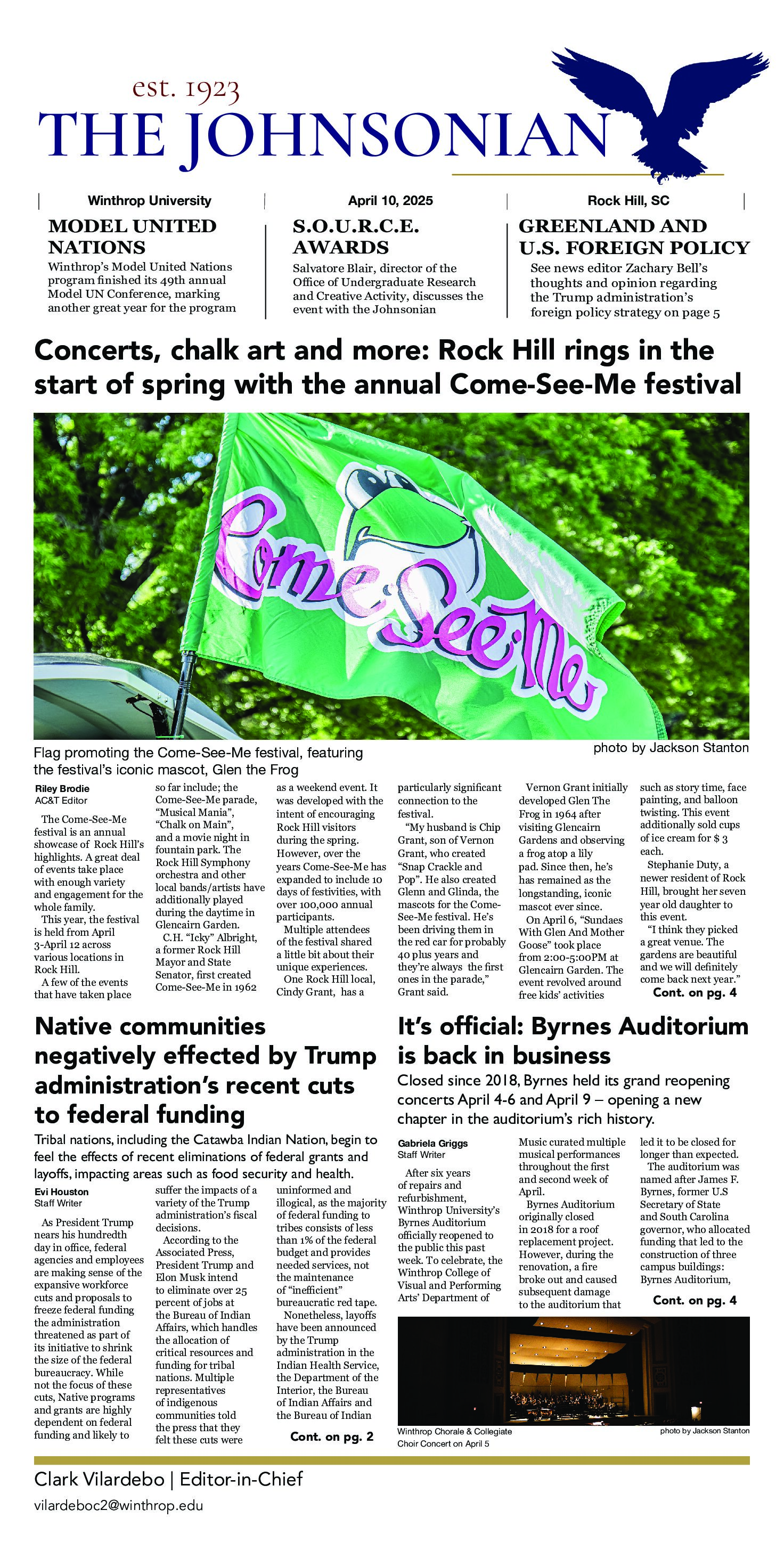Many students at Winthrop would agree that time flies while scrolling through TikTok.
Last week, President Trump signed an executive order which threatens to ban the video application.
“Trump told reporters at the White House that TikTok would be forced to cease U.S. operations by about Sept. 15 if it wasn’t sold to a U.S. company,” The Washington Post reported.
This is a first in American history for a president to possibly prohibit Americans from using something that is a part of free markets. TikTok released a statement on Aug. 7 addressing the president’s action.
“This Executive Order risks undermining global businesses’ trust in the United States’ commitment to the rule of law, which has served as a magnet for investment and spurred decades of American economic growth,” the statement reads. “And it sets a dangerous precedent for the concept of free expression and open markets.”
It is no surprise that the president does not show concern for open markets, considering comments he has made in the past, such as referring to it as the “dumb markets” in an interview with Chris Wallace on Fox News back in 2016.
Is this action within the rights of the president? Why would this even be on a presidential agenda? A recent Winthrop University alumna, Miranda Adams, gave her thoughts on how she views the situation.
“Trump has a huge problem with China and is using his hatred towards China to dictate decisions in the US,” Adams said. “I personally don’t think the president should have anything to do with what social media platforms should be and should not be allowed. There are more important things to worry about.”
Back in June, numerous TikTok users organized to register for tickets to President Trump’s rally in Tulsa, Oklahoma, their goal being to create empty seats at the event. Because of the sparse crowd, one can imagine that this event turned out to be quite a blow to the President’s ego. Given this information, it is no mystery why the president has now retaliated.
However, where does this leave TikTok users? Consequently, this order has brought even more attention to the video app. Many users are sharing their other social media handles, in case the ban does in fact happen. Videos have gone viral about TikTokers coming back to social media platforms such as Facebook and Instagram.
Winthrop senior Emily Miller knows what she will do if TikTok is banned.
“I don’t know that I’ll go back to any [other] apps specifically, but I’ll probably end up spending more time on YouTube,” she said.
Miller said that if TikTok is banned, she probably won’t increase her use of Facebook or Instagram.
“I don’t think I’ll end up using them any more than I currently do,” Miller said. “I like videos for comedy and I feel like that’s what TikTok provides, so I think I’d use YouTube to fill the void.”
So far, there are a couple of American companies that have shown interest in buying TikTok, Oracle Corporation being one of them, according to a report published by Market Watch on Aug. 17. As for now, until a U.S. company emerges, continue creating TikTok videos as if they were your last.




